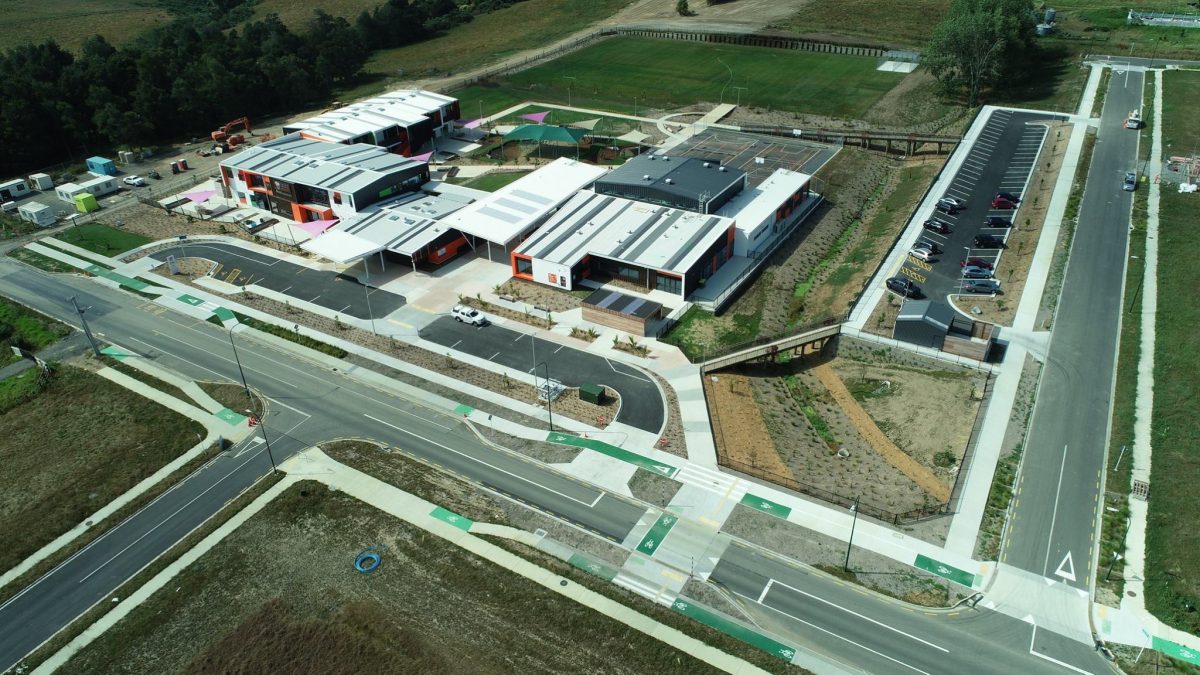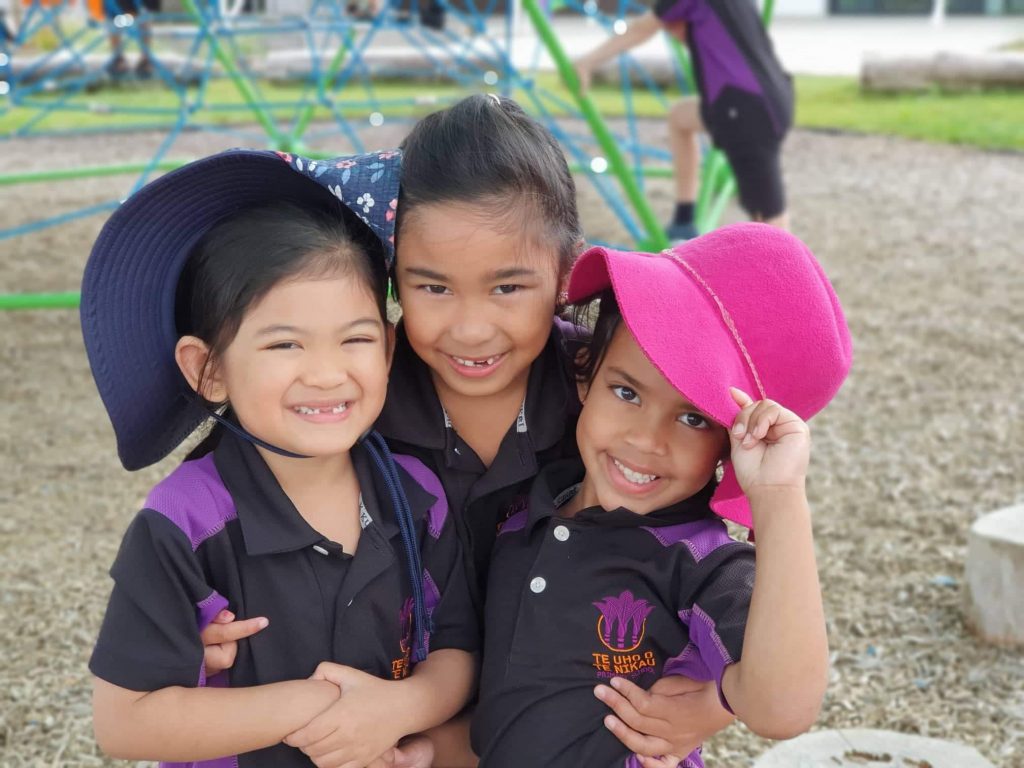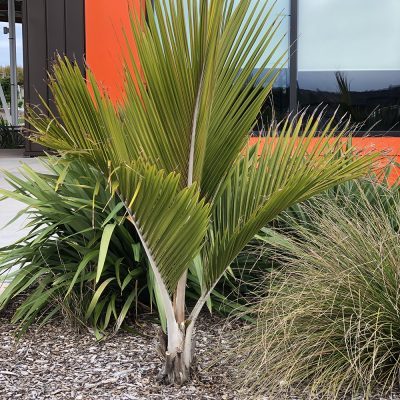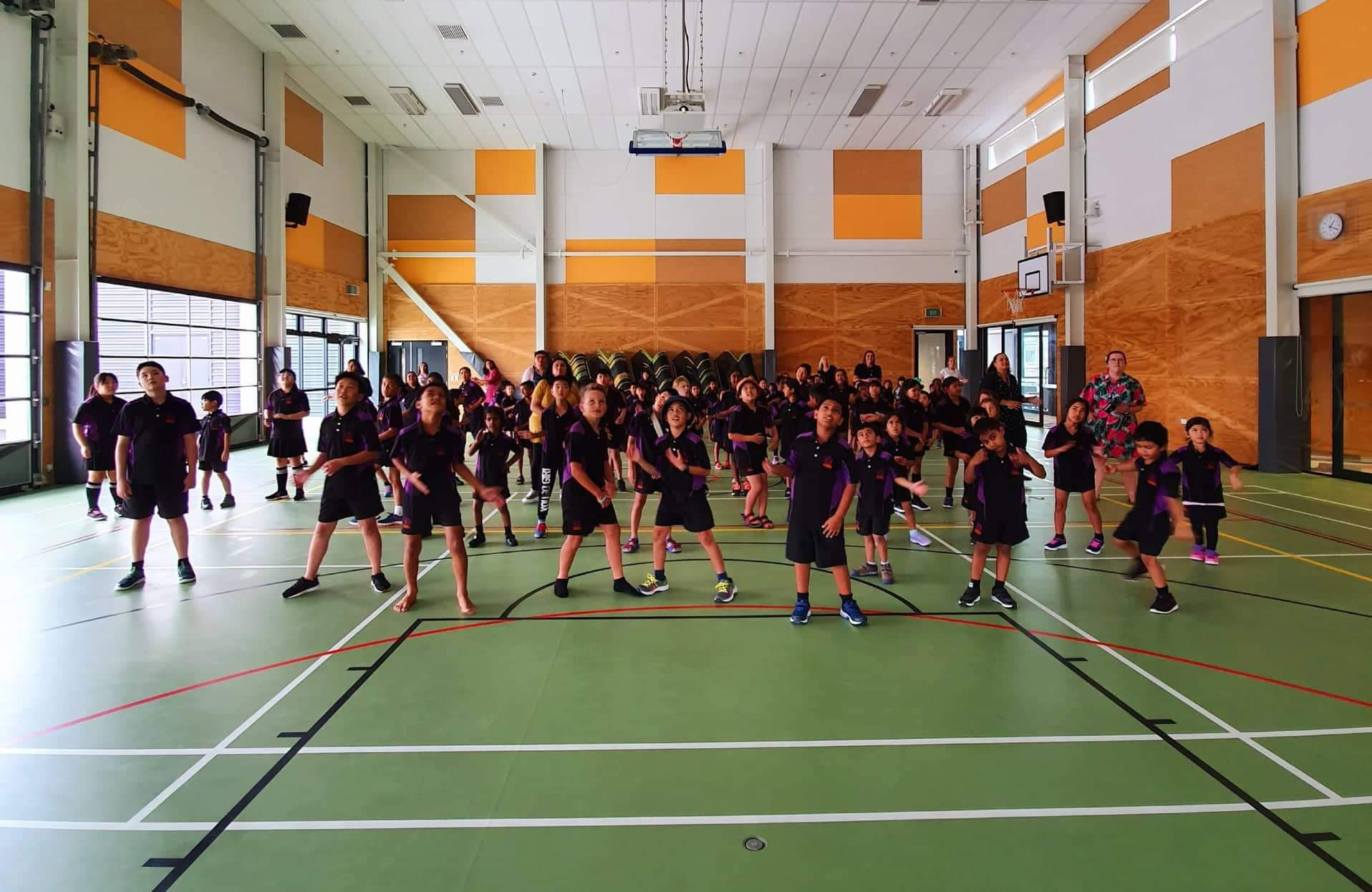
Our Story
TE UHO O TE NIKAU | “The Heart of the Nikau”
PRIMARY SCHOOL
The Importance of a Name
Background
As can be seen in the above image, Te Uho o te Nikau Primary school has two bridges connecting the carpark to the school. Thoughts of a cultural concept for the bridges resulted in a Nikau design plan offered by Reuben Kirkwood of the local iwi Ngāi Tai ki Tāmaki. This then fed the narrative from which a new name grew.

Uho
[Phonetic pronunciation – “Uhaw”]
Uho means (noun) heart (of a tree), pith of a tree, umbilical cord, core.
Te Uho – the heart of the tree, references to the tamariki, the children, they are the heart of the school. The whenua & ancient kōrero of the iwi Ngāi Tai ki Tāmaki – stories handed down our connection to the whenua to the rohe (area) the umbilical cord, that which connects us to Papatūānuku from which the tree grows, upwards toward Ranginui who also provides nourishment for growth.

Nikau
[Phonetic pronunciation – “Nee-koh”]
We refer to the rākau (tree) that once stood plentiful in the landscape now gone, struggling to survive in the growth, the expansion of Auckland.
Initial thoughts lead to the purpose of the tree, it’s structure. The Nikau, provided nourishment & shelter for the once many manu (birds), the analogy being the berries are the teachings and the manu are the tamariki (children).
The bird that partakes of the miro berry reigns in the forest.
Proverb
The bird that partakes in the power of knowledge has access to the World.
Local Significance & History of the Nikau Tree
An ancient pā maunga in Clevedon named Nikau Pā Kāinga, a seasonal home of Ngāi Tai ki Tāmaki Rangatira (Chief) Tara Te Irirangi still has Nikau growing well. In relation to the Flat Bush area of today, from atop Nikau Pā it was once possible to glance across to our other maunga within the areas now known as Ormiston, Botany Downs, Dannemora, Highbrook, East Tāmaki areas being Te Puke o Tara (Taramainuku), Mātanginui and Te Puke i ake Rangi these were clearly visible to one another.
No part of the tree was ever wasted, as with everything in te taiao (the environment) for Māori there was a use, a purpose for the varying elements of the Nikau. The leaves were used to thatch roofs – wharau āhuru, wharau mahana (comfortable & warm shelters). With this it weaves into the kōrero a name for the learning area for our tamariki hauā (disabled children) ‘Te Whàrau (sheltered, protected, safe). They were also used to wrap food before cooking, to weave into hats, mats, baskets, and leggings for travelling through rough undergrowth.
Mā te kōrero ka mōhio – Through discussion comes awareness
Mā te mōhio ka mārama – Through awareness comes understanding
Mā te mārama ka mātau – Through understanding comes knowledge
Mā te mātau ka ora – Through knowledge comes well being
Nā, Zaelene Maxwell-Butler
Ngāi Tai ki Tāmaki
Tihei Mauri Ora
2017
Our School Values
Our values were developed and defined throughout our establishment year. The values of growth, ownership, trust, membership and security guide our curriculum design, pedagogy and the way we ‘roll’ at Te Uho o te Nikau Primary School.

Our Vision Statement:
To guarantee to challenge every learner to explore the world together
Nourish
Grow
Thrive
| Growth | Ownership | Trust | Membership | Security |
|---|---|---|---|---|
| We believe that students & staff learn authentically when they integrate experience, imagination, information and application. | We believe that students and staff who think for themselves enhance our learning environment. | We believe that reciprocal trust is the heart of our learning culture. | We believe that all our school community can learn in different ways. | We believe in relationships that challenge, inspire and give security. |
| Learning is a creative journey that doesn’t look the same for everyone. We grow when we try new things, make mistakes and aspire to be the best version of ourselves. | We know that we can overcome challenges and take responsibility for our own journey. | I’ve got your back and you’ve got mine and together we will thrive. | Belonging to our community means accepting everyone and sharing ourselves. | Our school is a safe place where we are comfortable to be ourselves and tackle challenges. |
| Na te waewae i kimi (Obtain by seeking) | Kei ou ringaringa te au (The world is yours) | He waka eke noa (We’re all on one waka) | Nā tō rourou, nā taku rourou ka ora ai te iwi (With your basket and my basket, the people will thrive) | Ma te huruhuru, ka rere te manu (Adorn the bird with feathers so it can fly) |
